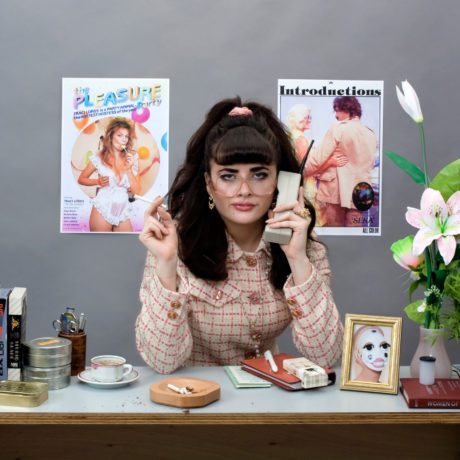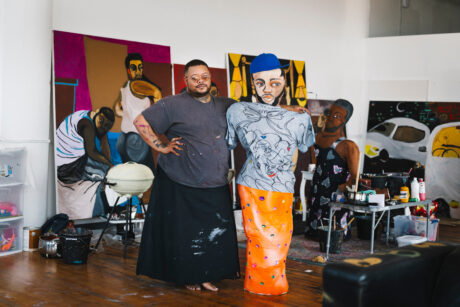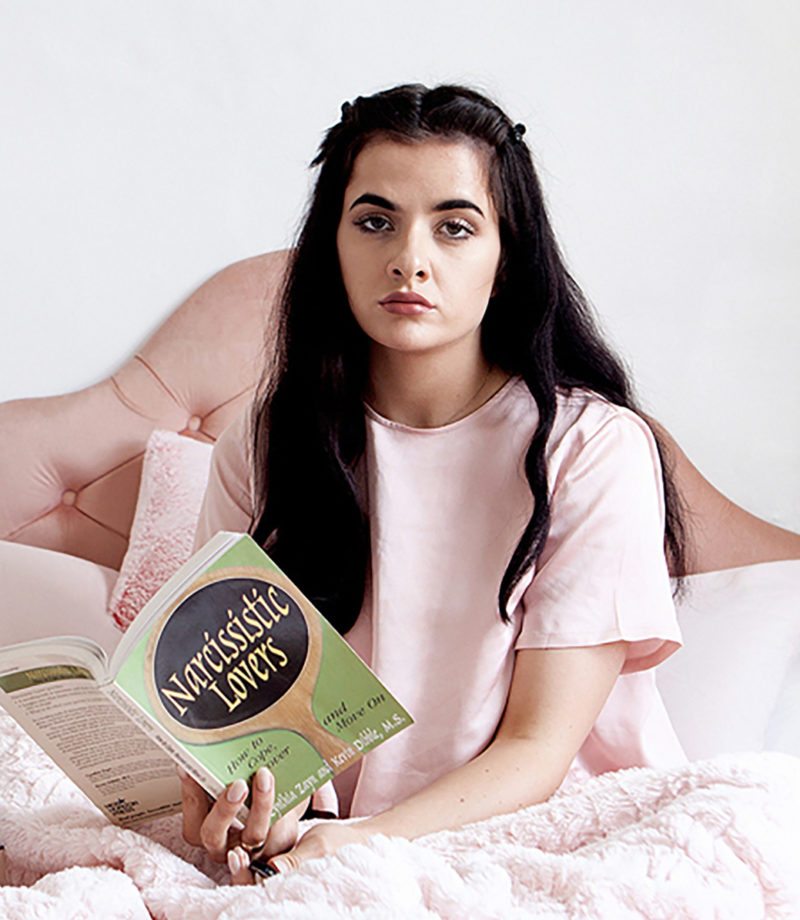
Juno Calypso’s intimate photographs have always alluded to secretive and solitary environments. Using the fictitious figure of Joyce, she has created outlandish self-portraits which call on the sickly-sweet settings of pop culture honeymoon hotels and pastel coloured bathrooms, the results of which are both alluring and unsettling. In her first foray into installation work at Galeria Melissa in London, she has revealed her own image in a disturbingly life-like cast of her own body—prepped for therapy—surrounded by robed mannequins in mysterious face masks. Ahead of the opening, I descended into this strange beauty chamber to discuss cults, self-care and decay.
You’ve created an eerie, space-aged version of a beauty salon which is both familiar and unsettling. What was your reasoning behind creating this space?
I have always wanted to do something with the salon or the treatment room. My first thought was to recreate one of the crazy places I’ve been to around the world. But then I thought, instead of reproducing a mad location that only I’ve visited, why don’t I create an environment that we’ve all been to. I wanted to create this cult of women. I’ve become obsessed; I’m in my own cult of cults.
The visual language is very important. You always have to have a potted orchid, and the smell is honey mixed with disinfectant, it’s so evocative. For example, when you go to the nail bar, as soon as you smell the acrylic you think “I’m here.” It’s very familiar to people globally, and all around the world women will find ways to make money through beauty. That’s an amazing thing, but you can’t really share that experience with the wider world.
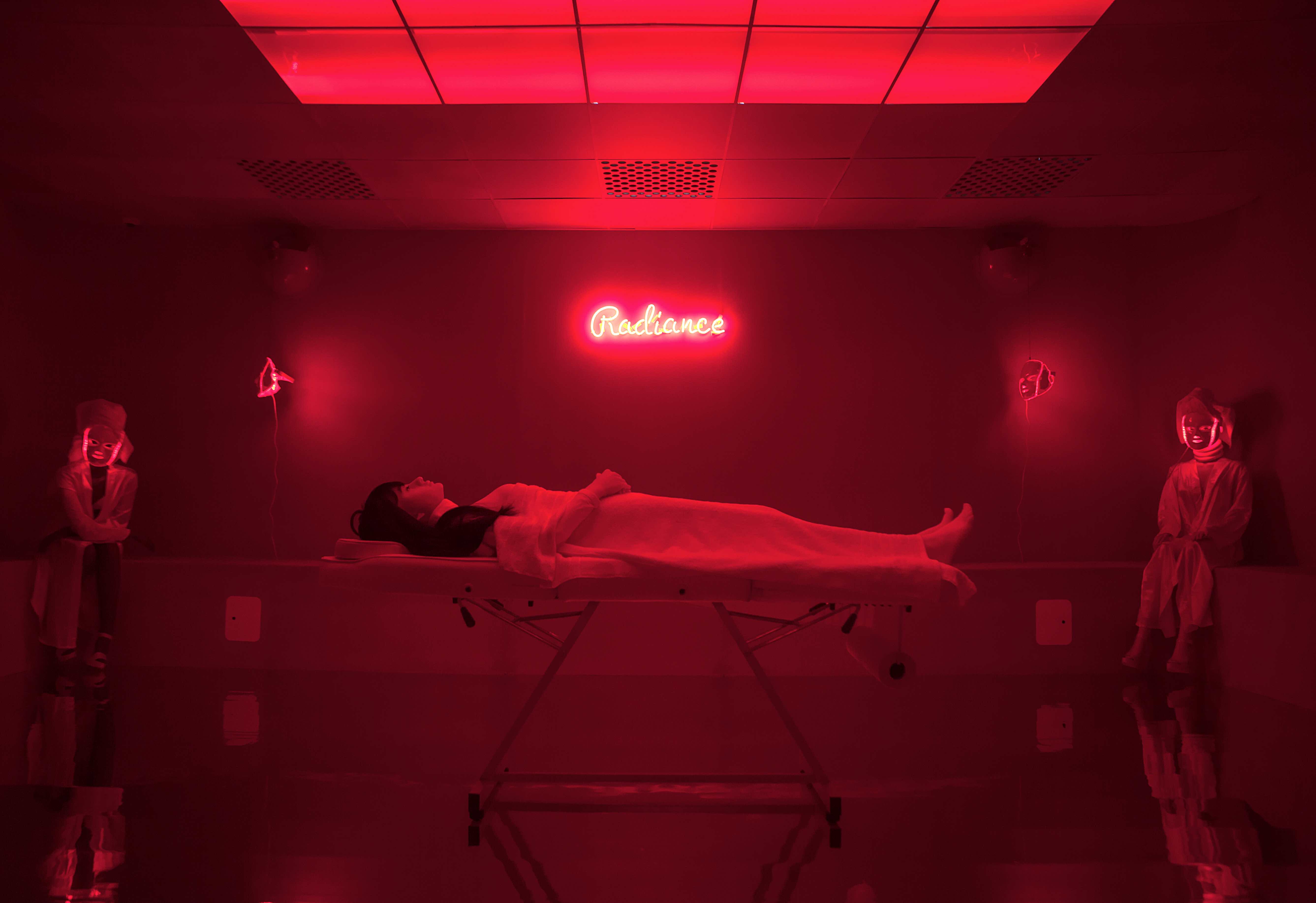
Juno Calypso, The Salon, 2018
“Some people might use drugs or something else to switch off, but I just use the salon.”
You’re exploring the notion of self-care here, as an individual, as well as being part of a slightly transient beauty community.
I wanted to convey this experience because when I did the Honeymoon Hotel series everyone was asking about marriage and the interplay between men and women. I loved that, but I wanted to do something about the relationship that you have with yourself. I feel that the whole experience of going to a salon has religious overtones, you get undressed and enter a room to be embalmed, and the whole thing is about the terror of death. All of these masks and lotions are screaming “Please don’t die! Please don’t decay!”
What is your personal relationship with beauty therapy like?
I love having strangers touch me. I don’t know if it’s the placebo effect, but it’s just so relaxing. Sometimes I think, I don’t even need a massage but I want someone to touch me. I even love going to the dentist, I’d go on behalf of someone else if I could. As soon as those rubbery hands touch my teeth I think “Ahhh… yes.” Also, I don’t want to talk when I’m having treatments, I love the perpetual silence. All you have to do is lie there and relax. It’s pure escapism. You’re in that limbo where you can just exist, where you don’t want to die but you don’t want to be alive. Some people might use drugs or something else to switch off, but I just use the salon.
In the future I’d love to recreate the salon environments that are just in people’s houses. I used to go and get waxed by a woman, but her husband would always be sitting in the next room watching TV every time I went. He looked so perpetually angry. It was very weird; I love that freakiness.
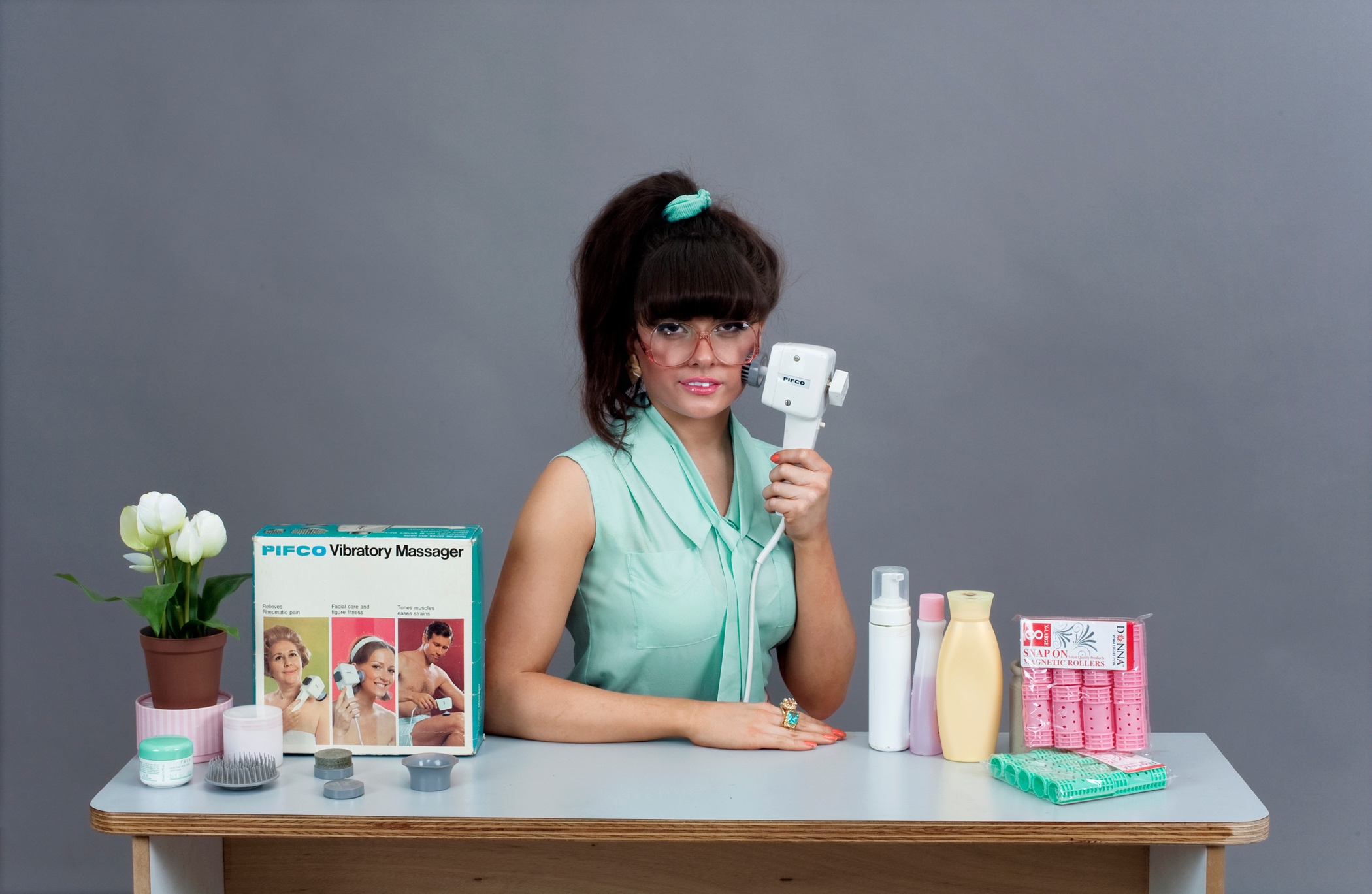
Your work often includes strange beauty objects, like masks and massagers…
I love the whole medical aesthetic, so it’s really about where the medical meets beauty. I’m fascinated by beauty mechanics, by the weird contraptions that get made. You look at these bizarre objects and it’s clear someone just made them in their garage, because there can’t be a great demand. There’s so much incredible stuff coming out of China, Japan and South Korea now, they’ve really upped the game.
You have used very specific low lighting in this installation; it’s very relaxing and a little bit terrifying.
I wanted everything to glow. There’s a big reference to Naomi Wolfe’s The Beauty Myth, which has a whole chapter about religion. She discusses how men are never identified as “glowing” or “radiant” and it’s this idea that a woman should be a glowing angel; that we’re not allowed to be dull. Brands are always talking about being “dewy” too. I’ve sprayed so many things on my face trying to achieve that. It’s like we’re trying to be a piece of fruit, juicy and dewy. But guess what? I don’t want to be a fruit!
